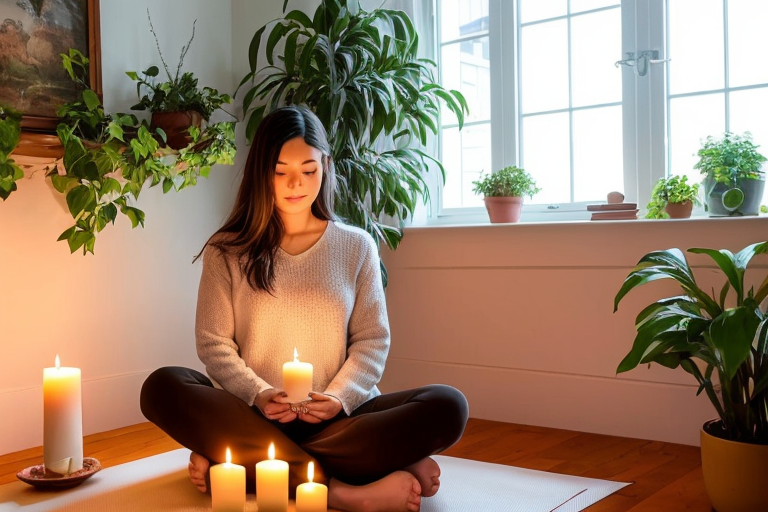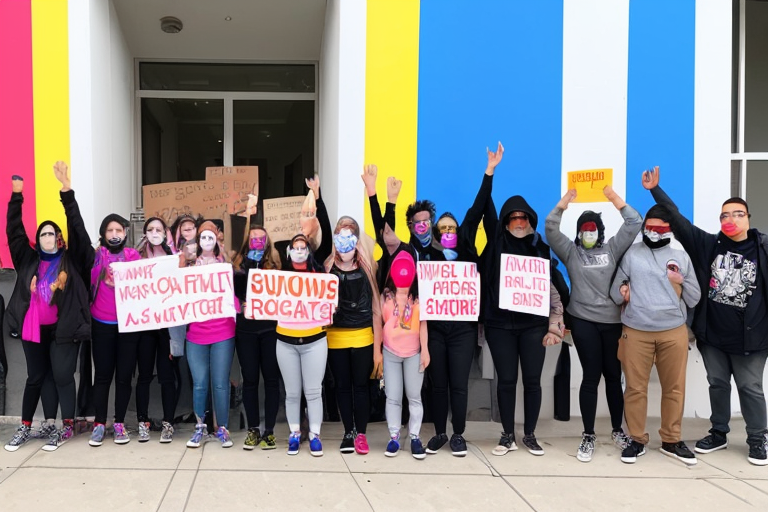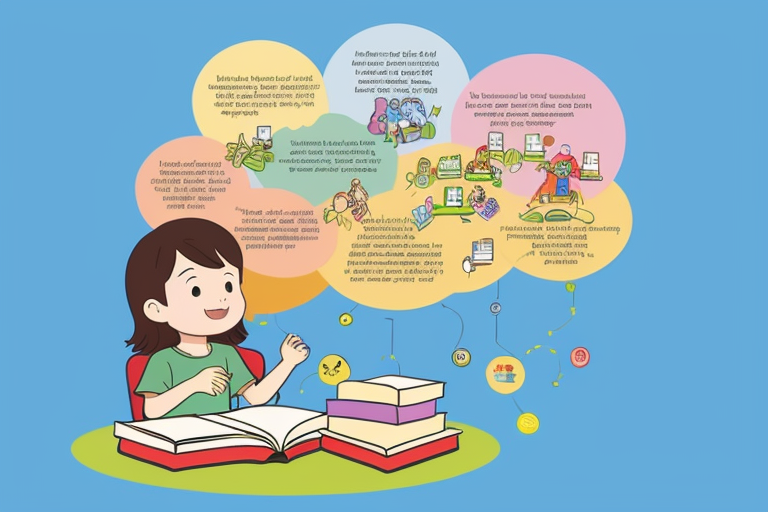Prioritizing Self-Care During Quarantine
The ongoing pandemic has brought about significant changes in our daily lives, with many of us spending more time at home than ever before. While this has helped in preventing the spread of the virus, it has also led to increased stress and anxiety levels for many individuals. With the uncertainty surrounding the future, it’s crucial to prioritize self-care during quarantine to maintain good mental and emotional health.
Here are ten ways to practice self-care at home:
-
Create an at-home spa day: Take some time to pamper yourself with a relaxing bath, a face mask, or a DIY manicure. This can help you unwind and feel refreshed.
-
Try a new exercise routine: Exercise is a great way to improve your physical and mental health. You can try a new workout routine, yoga, or even dance classes from the comfort of your home.
-
Eat healthy and stay hydrated: A healthy diet and staying hydrated can help boost your mood and energy levels. Make sure to incorporate plenty of fruits, vegetables, and water into your daily routine.
-
Meditation and mindfulness practices: Meditation and mindfulness can help reduce stress and improve overall well-being. You can try guided meditations or mindfulness exercises to help you relax and stay present.
-
Journaling and self-reflection: Writing down your thoughts and feelings can help you process emotions and gain clarity. You can try journaling prompts or simply free-write to express yourself.
-
Practicing gratitude and positive self-talk: Focusing on the positive aspects of your life and practicing positive self-talk can help improve your mood and outlook. You can start by writing down three things you’re grateful for each day.
-
Connecting with loved ones virtually: Social support is crucial for good mental health. You can stay connected with friends and family through video calls, phone calls, or even online games.
-
Joining online support groups: If you’re struggling with mental health issues, joining an online support group can provide a sense of community and validation. You can find support groups for various mental health conditions online.
-
Participating in virtual events and classes: Many organizations are offering virtual events and classes, from cooking classes to book clubs. Participating in these activities can provide a sense of structure and purpose to your day.
-
Establishing healthy boundaries between work and personal life: With many of us working from home, it’s essential to establish healthy boundaries between work and personal life. Set specific work hours, take breaks, and avoid checking work emails outside of work hours to prevent burnout.
By incorporating these self-care practices into your daily routine, you can improve your mental and emotional well-being during quarantine.
In the next section, we’ll focus on physical self-care practices that you can do at home.
Nurturing Your Mind and Soul
In times of uncertainty and stress, it’s crucial to take care of your mental and emotional health. While physical self-care is essential, it’s only half the battle. Mental and emotional self-care involves nurturing your mind and soul, finding inner peace, and managing your emotions effectively. Here are some practical tips and techniques to help you practice mental and emotional self-care at home:
Meditation and Mindfulness Practices
Meditation and mindfulness practices can help you calm your mind, reduce stress and anxiety, and improve your overall well-being. You don’t need any special equipment or skills to meditate; all you need is a quiet space and a few minutes of your time. You can try guided meditations, breathing exercises, or simply sit in silence and focus on your breath. Mindfulness practices involve being present in the moment, observing your thoughts and feelings without judgment, and cultivating a sense of gratitude and compassion.
Journaling and Self-Reflection
Journaling and self-reflection are powerful tools for self-discovery and personal growth. Writing down your thoughts and feelings can help you process your emotions, gain clarity, and identify patterns or triggers that affect your mental health. You can use a journal to express your gratitude, set intentions, track your progress, or simply vent your frustrations. Self-reflection involves examining your beliefs, values, and behaviors, and questioning them to see if they align with your goals and aspirations.
Practicing Gratitude and Positive Self-Talk
Practicing gratitude and positive self-talk can help you cultivate a positive mindset, boost your self-esteem, and improve your relationships. Gratitude involves acknowledging and appreciating the good things in your life, no matter how small or insignificant they may seem. You can write down three things you’re grateful for each day, or simply take a moment to reflect on the blessings in your life. Positive self-talk involves replacing negative self-talk with positive affirmations and self-compassion. You can challenge your negative thoughts and beliefs, and replace them with more empowering and supportive ones.
Frankie’s Story: Overcoming Anxiety with Mindfulness
Frankie, a 28-year-old marketing manager, used to suffer from severe anxiety and panic attacks. She tried various medications and therapies, but nothing seemed to work. One day, a friend recommended she try mindfulness meditation, and Frankie decided to give it a shot. She started with just five minutes a day, sitting in silence and focusing on her breath. Gradually, she increased her practice to 20 minutes a day, and she noticed a significant improvement in her anxiety levels. She became more aware of her thoughts and emotions, and she learned to observe them without judgment or attachment. Today, Frankie practices mindfulness every day, and she says it has transformed her life.
Judge Uvanni’s Verdict: Self-Care is Not Selfish
Judge Uvanni, a family court judge in New York, is a strong advocate for self-care, especially for parents and caregivers. She believes that taking care of yourself is not selfish; it’s essential for your well-being and your ability to care for others. Judge Uvanni encourages her clients to practice self-care regularly, whether it’s taking a bubble bath, going for a walk, or simply saying no to unreasonable demands. She says that self-care is not a luxury; it’s a necessity, and it’s something that everyone can and should prioritize.
Prioritizing Mental and Emotional Self-Care
As we continue to navigate the challenges of quarantine, it’s essential to prioritize our mental and emotional well-being. The uncertainty and isolation can take a toll on our mental health, but there are practical steps we can take to improve our well-being.
One way to prioritize mental and emotional self-care is through meditation and mindfulness practices. Taking just a few minutes each day to focus on our breath and quiet our minds can have a significant impact on our mental and emotional health. There are many resources available online, such as guided meditations and mindfulness exercises, that can help us get started.
Another effective self-care practice is journaling and self-reflection. Writing down our thoughts and feelings can help us process our emotions and gain clarity on our priorities and values. It’s also an opportunity to practice self-compassion and positive self-talk, which can boost our self-esteem and overall well-being.
Practicing gratitude is another powerful self-care tool. Focusing on the things we’re grateful for, even in difficult times, can help shift our perspective and improve our mood. We can start by writing down three things we’re grateful for each day or by taking a few moments to reflect on what we appreciate in our lives.
It’s important to remember that seeking professional help is also a vital aspect of mental and emotional self-care. If we’re struggling with mental health issues, it’s essential to reach out to a mental health professional or our primary care physician for support and guidance. Judges, like Uvanni, can also play a role in advocating for mental health resources and reducing the stigma around seeking help.
Finally, we can prioritize our mental and emotional well-being by taking care of our physical health. Eating a healthy diet, staying hydrated, and getting regular exercise can all have a positive impact on our mental health. It’s also essential to prioritize rest and relaxation, whether that means taking a nap, reading a book, or practicing a hobby we enjoy.
Incorporating these self-care practices into our daily routines can help us prioritize our mental and emotional well-being, even during challenging times. By taking care of ourselves, we can better show up for our loved ones and our communities. Remember, self-care isn’t selfish—it’s essential.
Staying Social While Staying Safe: 3 Ways to Practice Social Self-Care During Quarantine
The COVID-19 pandemic has forced us to stay at home and limit our social interactions to prevent the spread of the virus. While this is necessary for our physical health, it can take a toll on our mental and emotional well-being. Social isolation and loneliness can lead to depression, anxiety, and other mental health issues. That’s why it’s important to prioritize social self-care during quarantine. Here are three ways to do it:
1. Connecting with Loved Ones Virtually
Just because you can’t see your friends and family in person doesn’t mean you can’t stay connected with them. Thanks to technology, there are many ways to communicate with loved ones virtually. You can use video conferencing apps like Zoom, Skype, or FaceTime to have virtual hangouts, game nights, or movie screenings. You can also use social media to stay in touch and share updates about your life. Don’t be afraid to reach out to someone you haven’t talked to in a while. They might be feeling lonely too and appreciate the gesture.
2. Joining Online Support Groups
If you’re struggling with mental health issues or dealing with a difficult situation, joining an online support group can be a great way to connect with others who are going through the same thing. There are many online support groups for various topics, such as anxiety, depression, addiction, grief, and more. You can find them on social media, forums, or dedicated websites. Make sure to do your research and find a group that is moderated by a professional or experienced peer. Participating in a support group can provide you with a sense of community, validation, and support.
3. Participating in Virtual Events and Classes
Just because you can’t attend in-person events or classes doesn’t mean you can’t learn something new or have fun. Many organizations have moved their events and classes online, such as museums, theaters, fitness studios, and community centers. You can attend a virtual concert, take a virtual tour of a museum, or join a virtual fitness class. Not only will you learn something new or enjoy a new experience, but you’ll also have the opportunity to connect with like-minded people who share your interests.
Remember, social self-care is not selfish or indulgent. It’s a necessary part of maintaining your mental and emotional well-being, especially during challenging times like these. By staying connected with loved ones, joining online support groups, and participating in virtual events and classes, you can alleviate feelings of loneliness and isolation and improve your overall quality of life.
Finding Balance: Tips for Achieving Work-Life Balance During Quarantine
Working from home can blur the lines between work and personal life, making it challenging to find a balance between the two. It’s essential to establish healthy boundaries and prioritize rest to avoid burnout and maintain overall well-being. Here are some practical tips for achieving work-life balance during quarantine:
-
Create a designated workspace: Set up a workspace that is solely for work-related tasks. This will help you mentally separate work and personal life and create a physical boundary between the two.
-
Set a schedule: Establish a routine that includes specific work hours and breaks. Communicate your schedule with your colleagues and family members to avoid interruptions during work hours.
-
Take breaks: It’s essential to take breaks throughout the day to avoid burnout and maintain productivity. Take a walk, stretch, or do a quick meditation to recharge your mind and body.
-
Prioritize rest: Rest is crucial for overall well-being. Make sure to prioritize rest by getting enough sleep, taking time off when needed, and avoiding overworking.
-
Avoid multitasking: Multitasking can lead to decreased productivity and increased stress levels. Focus on one task at a time to maintain focus and reduce stress.
-
Communicate with your team: Communication is key when working remotely. Make sure to communicate regularly with your team to avoid miscommunication and stay on track with work goals.
-
Set achievable goals: Set realistic goals for yourself and your team to avoid burnout and maintain motivation. Celebrate small wins along the way to stay motivated and positive.
Meet Frankie, a remote worker who struggles with work-life balance. Frankie works for Uvanni, a company that offers resources for remote workers to maintain a healthy work-life balance. Despite having access to these resources, Frankie finds it challenging to separate work and personal life. Frankie often finds themselves working late into the night, skipping meals, and neglecting personal relationships.
To help Frankie achieve work-life balance, Uvanni recommends the following tips:
-
Establish a designated workspace and stick to a schedule.
-
Take breaks and prioritize rest to avoid burnout.
-
Avoid multitasking and focus on one task at a time.
-
Communicate regularly with colleagues to avoid miscommunication.
-
Set achievable goals and celebrate small wins along the way.
By implementing these tips, Frankie can achieve a healthy work-life balance and maintain overall well-being.
Discovering New Hobbies and Activities
Self-care is not just about taking care of your physical and mental health. It’s also about finding joy and fulfillment in your life. One way to do this is by discovering new hobbies and activities. With more time spent at home, now is the perfect opportunity to try something new.
Trying new things can be intimidating, but it can also be incredibly rewarding. It can help you step out of your comfort zone and discover new passions. Whether it’s learning a new language, trying a new recipe, or picking up a new hobby like painting or knitting, there are countless ways to explore your interests.
Not only can new hobbies and activities be fun, but they can also have mental health benefits. Engaging in activities that bring you joy can help reduce stress and anxiety. It can also improve your mood and boost your self-esteem.
Incorporating hobbies and leisure activities into your self-care routine can also help you establish healthy boundaries between work and personal life. It’s important to take breaks and prioritize rest, but it’s also important to find activities that bring you joy and help you disconnect from work-related stress.
If you’re not sure where to start, try making a list of things you’ve always wanted to try or activities that have piqued your interest. You can also look for online classes or tutorials to help you get started. Remember, the goal is not to become an expert, but to find joy in the process of learning and exploring new things.
Remember, self-care is not a one-size-fits-all approach. It’s important to find what works best for you. So, whether it’s practicing gratitude, connecting with loved ones, or discovering new hobbies and activities, make sure to prioritize self-care during these challenging times.









